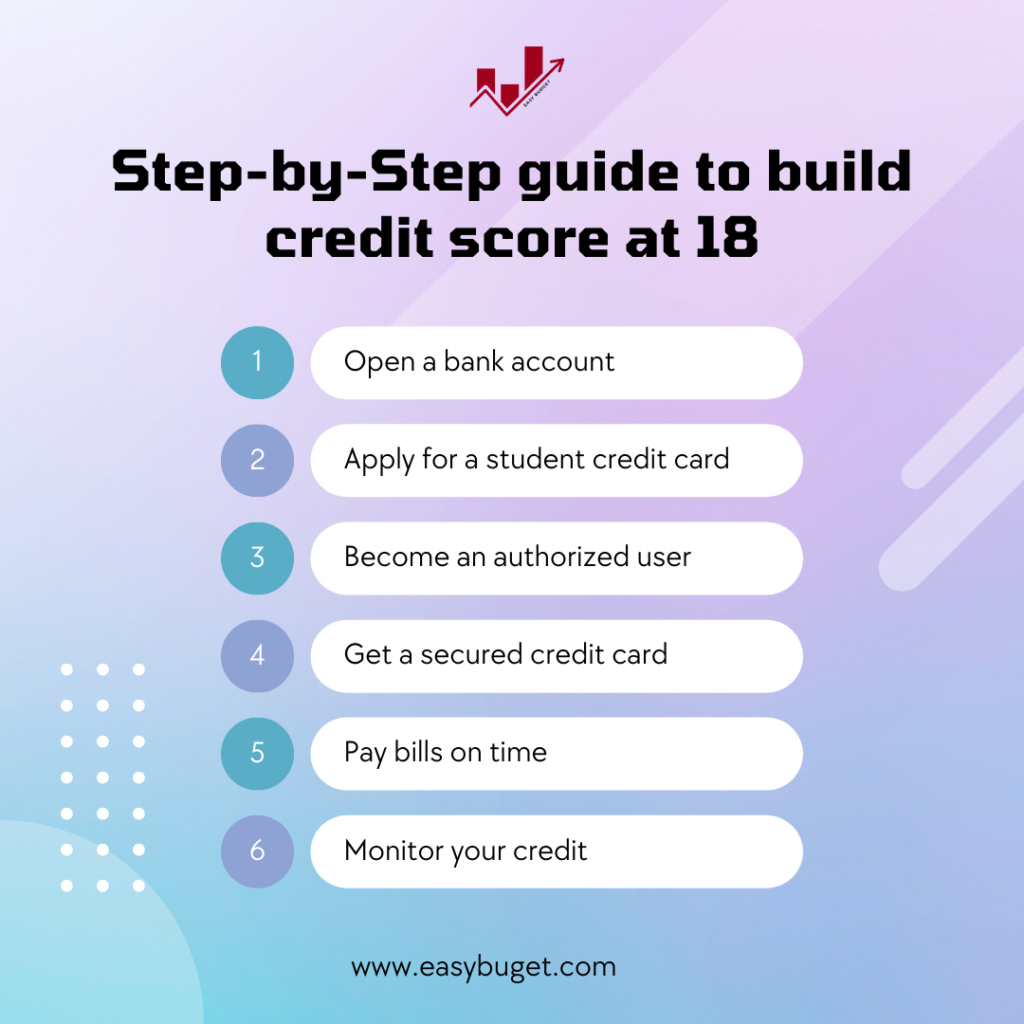Did you know that 1 in 5 young adults has no credit history by age 21? If you’re 18 and just starting to think about credit, you’re already ahead of the game. Building credit might not sound as exciting as planning your first road trip or picking out a college dorm, but trust me—it’s one of the most important things you can do for your future.
A good credit score can help you qualify for loans, rent an apartment, or even land your dream job. But how do you build credit when you’re just starting out? Don’t worry—I’ve got you covered. In this guide, I’ll walk you through everything you need to know to build credit at 18 and set yourself up for financial success. Let’s dive in!
Why building credit at 18 matters
Think of your credit score as your financial report card. It tells lenders, landlords and even employers how responsible you are with money. Here’s why building credit score early is a game-changer:
- Lower interest rates: A good credit score can save you thousands of dollars on car loans, mortgages and credit cards.
- Easier approval: Want to rent an apartment or buy a car? Landlords and lenders will check your credit.
- More opportunities: Some employers even look at credit scores during the hiring process.
The sooner you start, the better. Waiting too long can make it harder to build credit score later.
How credit score work
Before we get into the how-to, let’s break down what a credit score actually is. Your credit score is a number between 300 and 850 that reflects your creditworthiness. It’s based on five key factors:
- Payment history (35%): Do you pay your bills on time?
- Credit utilization (30%): How much of your available credit are you using?
- Length of credit history (15%): How long have you had credit accounts?
- Credit mix (10%): Do you have a variety of credit types (e.g., credit cards, loans)?
- New credit inquiries (10%): How often are you applying for new credit?
Understanding these factors will help you make smarter decisions as you build your credit.
Step-by-Step guide to build credit score at 18
Ready to get started? Follow these steps to build credit from scratch:
1. Open a bank account
Even though bank accounts don’t directly affect your credit score, they’re a great first step. They show lenders that you’re financially responsible. Plus, you’ll need a bank account to manage your money and pay bills.
2. Apply for a student credit card
Student credit cards are designed for beginners. They often have lower credit limits and fewer fees, making them a great way to start building credit score. Some good options include:
3. Become an authorized user
If your parents or guardians have good credit score, ask them to add you as an authorized user on one of their credit cards. You’ll piggyback on their good credit history, which can help boost your score.
4. Get a secured credit card
If you can’t qualify for a student card, a secured credit card is another great option. You’ll need to put down a deposit (usually 200−200−500), which becomes your credit limit. Over time, responsible use can help you qualify for an unsecured card.
5. Pay bills on time
Your payment history is the biggest factor in your credit score. Set up reminders or automatic payments to ensure you never miss a due date.
6. Monitor your credit score
Keep an eye on your credit score and report. Free tools like Credit Karma or Experian can help you track your progress and spot any errors.

Tips to boost your credit score fast
Want to see results quickly? Here are some pro tips:
- Keep credit utilization low: Aim to use less than 30% of your available credit.
- Avoid applying for too many cards: Each application can cause a small dip in your score.
- Use Credit building tools: Services like Experian Boost let you add utility and phone bills to your credit report.
Common mistakes to avoid
Building credit is simple, but it’s easy to make mistakes. Here’s what to watch out for:
- Missing payments: Even one late payment can hurt your score.
- Maxing out your card: High balances can increase your credit utilization and lower your score.
- Ignoring your credit report: Errors can drag your score down. Check your report regularly and dispute any inaccuracies.
FAQs About Building Credit at 18
1. Can I build credit without a credit card?
Yes! You can become an authorized user, take out a credit-builder loan, or use services that report rent and utility payments.
2. How long does it take to build a good credit score?
With consistent, responsible credit use, you can start seeing improvements in 6-12 months.
3. What’s the difference between a secured and unsecured credit card?
Secured cards require a deposit, while unsecured cards don’t. Both can help you build credit if used responsibly.
4. How often should I check my credit score?
At least once a year, but free tools like Credit Karma let you monitor it monthly.
Conclusion
Building credit score at 18 might seem overwhelming, but it’s easier than you think. By following these steps—opening a bank account, getting a student or secured credit card and paying bills on time—you’ll be well on your way to a strong credit score.
Remember, your credit score is like a financial superpower. The sooner you build it, the more opportunities you’ll have in life. So, what are you waiting for? Start building your credit today and set yourself up for a brighter financial future!
Call-to-Action:
- Have you started building your credit? Share your tips and experiences in the comments below!
- If you found this guide helpful, don’t forget to share it with your friends and family. Let’s help everyone build a stronger financial future!

